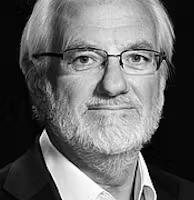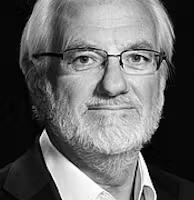Explore strategies for sustainable local economic growth. Learn about globalization, decentralization, and entrepreneurship in regional development.
Explore strategies for sustainable local economic growth. Learn about globalization, decentralization, and entrepreneurship in regional development.
This comprehensive course examines the processes and strategies for local economic development (LED). Students will explore why economic development occurs in some areas and not others, and how local actors can work together to improve their communities. The course covers key drivers of LED, including globalization, decentralization, competitiveness, and entrepreneurship. Participants will learn about value chains, clusters, and innovative LED strategies. Through expert insights, case studies, and a capstone project, students will gain practical knowledge to analyze and promote economic development in their own regions.
4.8
(362 ratings)
21,285 already enrolled
Instructors:
English
پښتو, বাংলা, اردو, 3 more
What you'll learn
Understand the key drivers and processes of local economic development
Analyze the impact of globalization on local economies and regional networks
Explore the role of decentralization in shaping local governance and economic strategies
Examine factors affecting competitiveness and innovation in local contexts
Understand different types of entrepreneurship and their roles in local economies
Analyze value chains and clusters as tools for local economic development
Skills you'll gain
This course includes:
3.5 Hours PreRecorded video
3 quizzes
Access on Mobile, Tablet, Desktop
FullTime access
Shareable certificate
Closed caption
Get a Completion Certificate
Share your certificate with prospective employers and your professional network on LinkedIn.
Created by
Provided by

Top companies offer this course to their employees
Top companies provide this course to enhance their employees' skills, ensuring they excel in handling complex projects and drive organizational success.





There are 9 modules in this course
This course provides a comprehensive exploration of Local Economic Development (LED), focusing on the processes by which local governments, businesses, and civil society groups collaborate to improve economic conditions in a specific area. The curriculum covers key drivers of LED, including globalization, decentralization, competitiveness, and entrepreneurship. Students will learn about value chains, clusters, and innovative strategies for promoting local economic growth. The course combines theoretical foundations with practical case studies from various regions, allowing participants to apply concepts to their own local contexts. Through a series of modules, students will gain insights into the complexities of LED, including the role of innovation, the importance of entrepreneurship, and the impact of global economic trends on local economies. The course culminates in a capstone project where participants analyze and develop strategies for their own regions.
Introduction to Local Economic Development
Module 1 · 1 Hours to complete
Globalisation
Module 2 · 3 Hours to complete
Decentralization & Local Responses
Module 3 · 5 Hours to complete
Competitiveness
Module 4 · 3 Hours to complete
Entrepreneurship
Module 5 · 2 Hours to complete
Value Chains and Clusters
Module 6 · 2 Hours to complete
Value Chains and Clusters: Lesson Choices
Module 7 · 1 Hours to complete
LED Strategies
Module 8 · 2 Hours to complete
Project Week
Module 9 · 4 Hours to complete
Fee Structure
Payment options
Financial Aid
Instructors
Expertise in Local and Regional Development in Latin America and Africa
A.H.J. (Bert) Helmsing is an Emeritus Professor of Local and Regional Development at the International Institute of Social Studies of Erasmus University Rotterdam. He earned his PhD (cum laude) in Economics from Tilburg University, focusing on the Processes of Regional, Urban, and Rural Change in Colombia. With nearly four decades of experience in development studies, he has provided education, capacity building, and policy advice on local and regional development in Latin America—particularly in Colombia, Bolivia, and Peru—and Sub-Saharan Africa, including Ethiopia, Zimbabwe, Uganda, Tanzania, Ghana, and South Africa. Bert has published over 30 articles in peer-reviewed journals, contributed 39 chapters to edited volumes, and published or edited ten books. His specialization includes regional economic analysis, fiscal decentralization, meso-level economic analysis of firms, chains, clusters, and the roles of NGOs and social entrepreneurship in local economic development. Currently, his research is centered on studying local institutional change.
Professor of Private Sector & Development
Peter Knorringa holds a PhD in Development Economics from the Free University in Amsterdam and serves as a Professor of Private Sector & Development at the International Institute of Social Studies (ISS) at Erasmus University Rotterdam. His research primarily explores the diverse roles and impacts of business in development, particularly examining the potential for socially responsible and environmentally sustainable development within the context of capitalism. His empirical work delves into global value chains, industrial clusters, private governance, labor standards, frugal innovation, informal sector entrepreneurship, and strategies for supporting survival businesses. Additionally, he is a co-founder and the current Director of the Research Centre on Frugal Innovation in Africa, a collaborative initiative involving Leiden University, Delft University of Technology, and Erasmus University Rotterdam.
Testimonials
Testimonials and success stories are a testament to the quality of this program and its impact on your career and learning journey. Be the first to help others make an informed decision by sharing your review of the course.
Frequently asked questions
Below are some of the most commonly asked questions about this course. We aim to provide clear and concise answers to help you better understand the course content, structure, and any other relevant information. If you have any additional questions or if your question is not listed here, please don't hesitate to reach out to our support team for further assistance.





